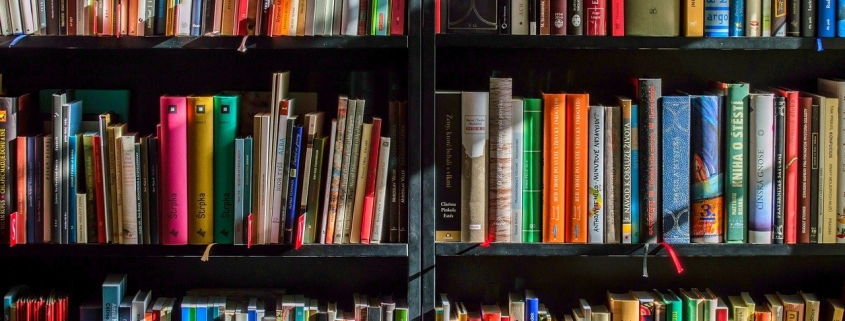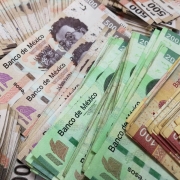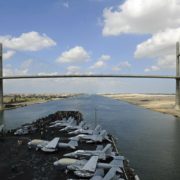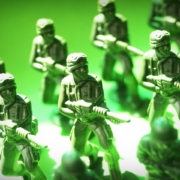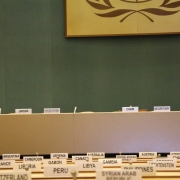What was ASEAN’s response to the Third Indochina War?
Topic of Study [For H2 History Students]:
Paper 2: Regional Conflicts and Co-operation
Source Based Case Study
Theme III Chapter 2: ASEAN (Growth and Development of ASEAN: Building regional peace and security – relations between ASEAN and external powers)
Topic of Study [For H1 History Students]:
Essay Questions
Theme II Chapter 2: The Cold War and Southeast Asia (1945-1991): ASEAN and the Cold War (ASEAN’s responses to Cold War bipolarity)
Historical context: A violation of national sovereignty
In December 1978, Vietnamese forces launched a full-scale assault, crossing the Cambodian-Vietnamese border.
In January 1979, the Cambodian capital Phnom Penh was occupied by an alternative government, the People’s Republic of Kampuchea (PRK).
In the same month, Singapore joined other member nations for an urgent meeting. After much deliberation, ASEAN issued a joint statement to deplore the invasion, calling for the immediate withdrawal of Vietnamese forces from Cambodia.
4. Towards this end, the ASEAN Foreign Ministers called for the immediate and total withdrawal of the foreign forces from Kampuchean territory.
5. The ASEAN Foreign Ministers welcomed the decision of the United Nations Security Council to consider without delay the situation in Indochina, and strongly urged the Council to take the necessary and appropriate measures to restore peace, security and stability in the area.
An excerpt from the “Joint Statement The Special ASEAN Foreign Ministers Meeting On The Current Political Development In The Southeast Asia Region Bangkok“, 12 January 1979.
Notably, ASEAN not only made a united stand against military aggression, but also called on the United Nations to address this escalating threat that had endangered regional stability.
Contestation by Great Powers
On 17 February 1979, China engaged in a military confrontation with Vietnam. Observers interpreted the attack as a hint to Moscow that China would not remain on the sidelines following the invasion. Yet, ASEAN members were increasingly concerned with the Chinese involvement in the conflict.
After much persuasion with member nations in the United Nations General Assembly, the International Conference on Kampuchea (ICK) was held from 13 to 17 July 1981. However, there were some shortcomings.
The pro-Communist bloc nations like Soviet Union and Vietnam were absent. Additionally, China had disagreed with ASEAN’s draft for the ICK, particularly the disarmament of Khmer resistance groups and the creation of an interim administration.
Singapore saw this inflexible Chinese position as evidence of Beijing not wanting an early solution, and that it was more interested in a protracted conflict to “bleed” Vietnam. Its ultimate objective was to use the armed forces of the Khmer Rouge to restore a pro-China regime in Phnom Penh, and hopefully see the emergence of a Chinese-friendly Vietnam. Kuala Lumpur, Jakarta and Manila felt that ASEAN should not be seen to be succumbing to China’s pressure at this stage whereas Bangkok was more interested in accommodating China, as its overriding concern was to ensure that China could help defend Thailand against a Soviet-supported Vietnam.
An excerpt from “Singapore, ASEAN and the Cambodian Conflict 1978-1991” by Ang Cheng Guan.
The situation had become even more complex when the US delegation sided with China. Then Foreign Minister of Singapore Dhanabalan had revealed that attempts to convince Big Powers like the USA and China had been challenging, given their diverging interests with ASEAN members during the Cold War.
I was surprised to note how keen the U.S. was to accommodate the PRC’s request. I explained to the U.S. Assistant Secretary of State that it was not possible to accede to the PRC’s request as it was wrong and would also not get any support from the conference. He ended the meeting by threatening that he would go over my head and take the matter up with Prime Minister Lee Kuan Yew in Singapore… It was a real life experience for me that interests and not principles determine the actions of big powers.
An excerpt from “The Little Red Dot: Reflections by Singapore’s Diplomats” by Tommy Koh and Li Lin Chang.
What can we learn from this article?
Consider the following question:
– Assess the challenges that ASEAN faced in response to the Third Indochina War.
Join our JC History Tuition to study how ASEAN managed various regional and international threats during the Cold War. The H2 and H1 History Tuition feature online discussion and writing practices to enhance your knowledge application skills. Get useful study notes and clarify your doubts on the subject with the tutor. You can also follow our Telegram Channel to get useful updates.
We have other JC tuition classes, such as JC Math Tuition and JC Chemistry Tuition. For Secondary Tuition, we provide Secondary English Tuition, Secondary Math tuition, Secondary Chemistry Tuition, Social Studies Tuition, Geography, History Tuition and Secondary Economics Tuition. For Primary Tuition, we have Primary English, Math and Science Tuition. Call 9658 5789 to find out more.

